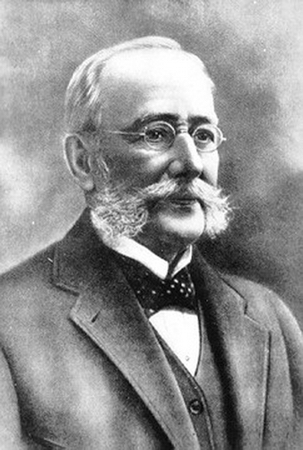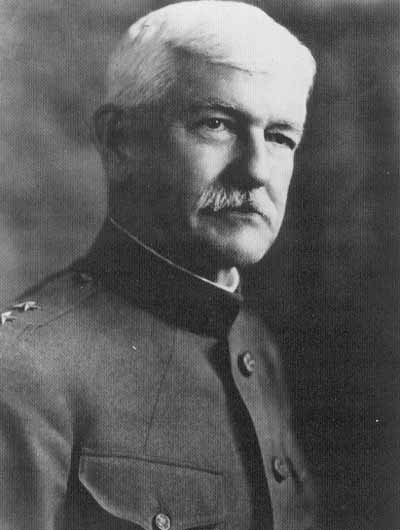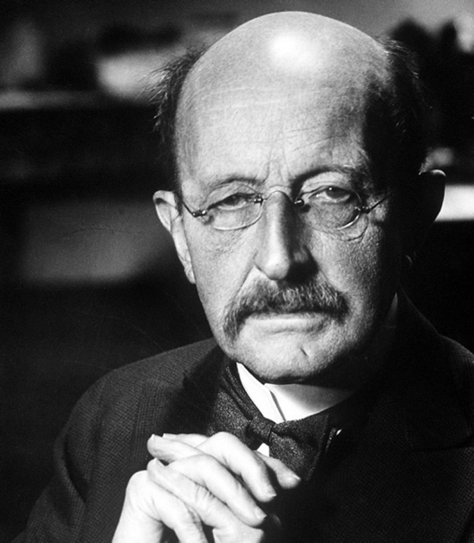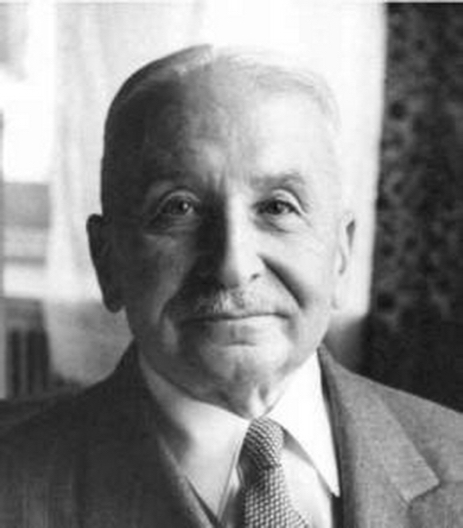Lecture #1, The Ideological Immune System
Principles of Human Action
February 26th, 1995
Long Beach Memorial Medical Center
Van Dyke Theater
Lecture Number One
Good morning, ladies and gentlemen. Did all of you answer all the questions? How many of you got all of them correct, a show of hands? Very good. I am really impressed. If you haven’t guessed already, my name is Jay Snelson and I am truly delighted that you have joined us. Before this particular session this morning is completed, I hope you will be delighted that you have joined us at this presentation. One of my main goals today will be to entertain you.

Ginger Rogers & Fred Astaire
Now of course almost everyone, everyone you know, enjoys entertainment. More than twenty years ago, MGM produced a motion picture with the title, That’s Entertainment. All of the great MGM musical stars were featured in the film – Bing Crosby, Judy Garland, Gene Kelley, and Liza Minelli. Here is, for example, the fabulous Ginger Rogers dancing with the master of dance, Fred Astaire.
But entertainment involves much more than dancing, singing, and acting. To entertain means to hold the attention of someone’s mind in an agreeable way. In this seminar my aim is to hold the attention of your mind in an agreeable way. However, I want to warn you from the very beginning, this seminar is not designed to entertain everyone. So we’ll determine whether the seminar is designed to entertain you or somebody else.
Human Action Principles is designed to entertain those adults who perceive themselves to be educated or intelligent or successful or all of these. I’m not here to entertain you with dancing or singing. I’ll leave that to Gene Kelley and Liza Minnelli. If you haven’t seen That’s Entertainment, it’s certainly worth viewing. Now, it should come as no surprise that I’m here to entertain you with new ideas and new knowledge.
Here is a question the seminar will address: namely, how can an individual who is educated or intelligent or successful or all of these, achieve a rapid growth in the quality, utility, and scope of his most fundamental knowledge? And so the aim here will be to give you a vast amount of valuable knowledge in a relatively short period of time, just four Sundays. The most valuable knowledge you can ever gain is called fundamental knowledge. Our English word ‘fundamental’ is derived from the Latin ‘fundamentum’ which means, “the base upon which a structure is erected.”
And so we’re going to focus upon these questions, for example, how can you gain a rapid growth in the quality of your most fundamental knowledge? How can you gain a rapid growth in the utility or practicality of your most fundamental knowledge? How can you gain a rapid growth in the scope and breadth of your most fundamental knowledge? My aim is to entertain you with a practical answer to all of these questions. Your most valuable knowledge of course is fundamental knowledge.
It is fundamental knowledge that you apply as the means of attaining your most important personal goals. What are your most important personal goals? If you were to ask, let’s say, a random sample of educated, intelligent, successful adults this question, here are some common answers.
Most of them would likely say, well, I’d like to be earning more prosperity, building greater career success, achieving greater family success, securing greater self-confidence, acquiring greater self-esteem, gaining richer friendships, realizing proper recognition for what I’ve done, what I’ve achieved. Not everyone aims at these personal goals. You could be the exception.
Are any of you willing to say that you’re just totally saturated, you’ve had it up to here with prosperity, career success, family success, self-esteem, rich friendships, recognition – how many of you just can’t handle any more of this? Well, if for no other reason, the continuing quest for at least some of these goals is an ingredient of what we might call, going after these all of your life, it’s an ingredient of perpetual youth.
Now, every man and woman faces this problem. Your success at the attainment of your most important personal goals can be no greater than the quality, utility, and scope of your most fundamental knowledge. Now all of us learn in time that it’s one thing to aim at all of these lofty goals, but it’s quite another thing to attain any of them. Everyone, educated or uneducated, intelligent or unintelligent, possesses fundamental knowledge. We use this fundamental knowledge to determine the means we employ to attain all of our goals. And so when the question arises, well, how can we identify the specific means that must be applied to attain our most sought-after goals, we’re dealing with a fundamental question, namely a how-to problem.
This seminar, Principles of Human Action, introduces you to an entire science on how to get there, that is, how to get where you are going. I call this how-to science, the science of human action, or optimization theory. The science of human action poses one central question to every human who is acting with a purpose, namely, can the means you are employing attain the ends you are seeking? We will be asking you that question, essentially implicitly, every five minutes in this seminar. The ‘you’ can be anyone, it can be you as an individual, you as a foundation, you as a corporation. It could be you as a committee or a school or a government or the Congress.
To use more popular language, the science of human action asks this crucial question: “Do you know what you’re doing?” What is the individual actually doing who knows what he’s doing? It’s a simple idea. He can take those actions that will attain the goal he’s seeking. He can apply correct means that will attain his ends.
The science of human action, then, tests the quality of human action: “Can the specific means you’ve chosen attain the intended goal? Yes or no?” This is a science that any adult with average intelligence can apply to the everyday real world. Your potential success at the attainment of any goal you can imagine depends upon your ability to do what? To identify the correct means to the attainment of the goal you seek.
And so the science of human action optimization theory is a science of goal-attainment or goal-achievement that I claim any of you can master. This is a practical, how-to science that shows how individuals can apply science to identify the correct means or the true means to the attainment of the ends or goals that they are seeking.
In your opinion, what is the most important subject of study there is?
If you were to go out on the street and take an opinion poll of 100 people at random and ask, excuse me sir, ma’am, in your opinion, what is the most important subject of study there is? You wouldn’t find much agreement. Most people have never thought about it. Nevertheless, I’m going to show you what I claim to be the most important subject of study there is and then you have to decide whether you agree or not. I’m unable to find or identify any subject that’s more important than this.
And so, without fanfare, here is the most important, the most vital, the most significant subject there is, namely, understanding the causes of things. Using more scientific language, you could say, understanding the causes of effects. Now if you think there is a more important subject, that’s not a problem, as long as you will concede that understanding the causes of things is at least one of the most important subjects. Would anyone say, “I don’t even think it’s important at all?” Okay, either you agree it’s either the most important subject or you say it’s one of the most important subjects. Can we agree on that?
When the subject of concern turns to the most important subject, we run into a very large problem. The more important the subject, the more difficult it is to get people excited about understanding it. Now, there is an explanation for this paradox and that is, the more important the subject matter, the more difficult it is to see the benefit to be gained from understanding it. The more important and fundamental the subject matter, the more likely it is to involve intangible principles or generalizations.
But where is my benefit? In fact, the first thing people ask when you tell them about the seminar is, well, what’s in it for me? What are the benefits? I want to know right now, what are the benefits I’m going to get out of this, before I invest four Sundays. Everybody asks this.
Unless people are taught otherwise, most of them will only go after instant benefits and immediate gratifications. However, the short-term focus has a price; most people have a short-term focus. It always has a price. The greatest benefits in life are rarely instant benefits – rarely. You’ve likely discovered the greatest benefits, I’m sure, are gained by those who are willing to invest the necessary time, energy, effort, and thought. Among the most valuable benefits are those benefits you can gain from a correct understanding of the causes of things.
But what things or what effects are we talking about? We’re not going to attempt to understand the causes of everything, or certainly every effect in the universe. That’s a bit much. Therefore, let’s narrow down the field of interest to two questions: One, what are the causes of the things or effects that you like and, conversely, what are the causes of the things or the effects that you dislike.
The answer to both questions is of paramount importance to you. Your ability to correctly identify the causes of those effects you both like and dislike will determine what for you in your life? More than any other factor, it will determine the degree of your success or your failure throughout your entire life. What could be more important to you than that? Can you think of anything?
If understanding the causes of things you like and dislike is as important as I claim, then where can we begin with such a bold pursuit? Here is the first problem you run smack into: Things do not come neatly labeled, ‘cause and effect.’ We have to decide for ourselves when and where to pin labels. Well, how does this affect you?
If you want to understand what is going on in the universe, you will not get any help from nature. Nature does not tell you the causes of things. Nature has never labeled the cause of one thing. This means you have to pin on every single label yourself or have somebody else do it for you. And so your lifetime challenge is to find an answer to this profound question: how do you know when and where we have pinned on the correct label; that is, a correct label of causality or the causes of things?
Now if I were to give you this ten minute assignment, name seven things or social effects that you dislike that, let’s say, take place internationally, nationally, and locally, what would you name? Now we don’t have ten minutes for the exercise, although maybe you already took that time.
But if you took the time, I believe most of you would include most of these in your list of seven or certainly in the top ten: international war, world starvation, widespread poverty, economic depression, monetary inflation, epidemic crime, and failing education. Your descriptive language may differ. You may have included overpopulation on your list. Would any of you put overpopulation on the list of, let’s say, the top seven. Anyone? All right, half a dozen of you will.
Well, overpopulation is included in my seven under the headings of world poverty and world starvation. For example, in a nation of 225 million people who have, in general, an abundant food supply we don’t normally say they are suffering from overpopulation. But let’s say where you have another nation of 225 million people, a great many of whom are starving to death, we would say these poor wretches are suffering from overpopulation.
Now you may have included on your list some reference to, let’s say, problems related to ecology and pollution. I was asked before the lecture started, “What about ecology? Is this not a major problem? And pollution, and so forth, and the degrading, for example, of the ecosystem?” Well, we will have something to say about these problems later and they do exist.
But the question is, with any problem, have you correctly identified the problem, and if you have, do you have a solution that works? If you read any daily newspaper you will see that the largest part of the first ten pages are devoted to coverage to these seven disliked problems.
Newspapers, of course, are in the business of reporting on those events the editors claim are newsworthy. News is what the editor claims is newsworthy. That’s all it is. They focus on what? The crimes of the day, the disaster of the day or the week, and so forth. The murder of the afternoon if you are in a big city, since there are so many that day. “Today, the afternoon’s murder is…” and so forth.
But, dear friends, what are the fundamental causes of these disasters and calamities? What are the causes of international war? You know, for thousands of years, thousands of historians have written about war and its causes, but have any of them given us a scientifically precise explanation of the basic causes of war? And if you think they have, then which ones?
What are the causes of world starvation? Thousands have written about world starvation and its causes, but which of these authorities has given us a correct explanation of causality? Which ones? What are the causes of widespread poverty? More has been written on poverty than you could ever read, but which experts have shown us an accurate identification of the causes of poverty?
What are the causes of economic depression? Thousands of authorities have voiced their opinions on this question, but, again, which ones have given us a scientific explanation of causality and what does a scientific explanation mean about anything?
What are the causes of monetary inflation? Hundreds of experts have written on this subject, but which presumed experts have given us a precise identification of the causes of inflation?
What are the causes of epidemic crime? Again, hundreds of experts have given us their opinions on the causes of growing crime, but which ones have given us a correct explanation of causality? Do you know which ones?
What are the causes of failing education? More has been written on failing education than you could read in a lifetime, but which authorities have given us a true explanation of the causes of failing education and what does failing mean? Define failing.
The question I am posing here is this: How can you, sitting in this room, determine if any of these so-called experts, authorities, actually know what they are talking about when they claim to understand the cause of all of these effects that we dislike? Would that be worth knowing how to do? Especially when you stop to consider that there is more disagreement than there is agreement among these experts as to what is the actual cause of all of these seven crisis problems – have you noticed the magnitude of disagreement among the experts?
This is one of the significant questions I will be answering in this Principles seminar, namely, in a world of wall to wall experts who largely disagree on how to solve the crisis problems, how do you know which experts know what they are talking about? The problem to be solved is: How can you come up with an answer that is not based upon conventional dogma or popular superstition?
If we decide that it is useful to avoid an answer based upon either dogmatic authority or accepted superstition, then we might turn to science for an answer, and that is exactly what we are going to be doing these four Sundays. We are going to have, I hope you will have, an exciting experience doing this. One of the exciting things about any scientific premise or conclusion is that you never have to accept it or believe it simply because some scientific authority claims the premise or the conclusion is true.
You can independently test a premise or a conclusion to determine for yourself, is this true, for you at least. Others can independently verify the premise or conclusion. They can test every scientific claim that is put forth, and so science never requires you to accept any premise or any conclusion on blind faith. And when it does, what does that mean? It is no longer science.
While you were waiting for this session to begin, I asked you to answer this question: What do you think is man’s greatest failure? What repeated failure has resulted in the continuation of these seven crisis problems? What failure of man, for example, do you think has caused more misery, violence, bloodshed, and destruction, than any other failure? How many have you have filled in an answer, let me see a show of hands. For the record, that’s about half of you.
If you wrote in an answer, you can compare your answer with mine. There are two possibilities, either we will be in agreement or we won’t. But the reason I asked you to try to answer all of these questions before we started is, if you think about the question, give it your own individual thought, then when we discuss it later, you will get much more out of how we come up with an answer to the question. I will give you now, in one dozen words, man’s greatest failure. Man’s greatest failure is the failure to correctly identify the causes of effects.
Ladies and gentlemen, what has happened is we have failed at pinning correct labels, accurate labels, on the causes of things. For the most part we have consistently pinned wrong labels on the cause of those effects that we both like and dislike. Therefore, one of the questions I will discuss is: What is the cause of man’s failure to correctly identify the causes of things?
Some two thousand years ago, the Roman poet Ovid told us that if you want to understand the cause of certain effects, you have got a large problem. Ovid said the cause is hidden, but the effect is known. To paraphrase Ovid, effects are obvious, but the causes are hidden. Well you know, man is good at identifying the effects that he both likes and dislikes, but when he tries to identify the correct cause of those effects, he usually misses the mark.
There’s a reason for this failure. The true cause is almost always hidden from view. Nature does not pin a correct label on the cause of anything. Man has to pin on every label; man must discover the hidden causes of the things that he both likes and dislikes. And so my friends, I am going to give you the following illustration to emphasize this point.
This will cover much of the rest of this first lecture and some of you may wonder: Where is he going with this, and what has this got to do with me? But be patient. If I don’t tie it together sooner, then I will later. And the illustration has to do with this: Somewhere in the world a hundred million people are about to die from some mysterious unknown cause.
For ten years you have been searching for a correct explanation of the cause of this mystery killer. The cause has been hidden from view, but finally scientific investigation pays off. You achieve a remarkable breakthrough. You discover the correct cause of all of these mysterious deaths. With this new discovery you are able to develop an inexpensive cure. The lives of a hundred million people will now be saved.
With great enthusiasm you announce your discovery to the world, but something goes wrong. What went wrong? No one believes that you have correctly identified the cause of the mystery killer. All of the experts claim, “well, something else is the cause.” You present even more scientific evidence that you have identified the cause, you have developed a cure, here’s the evidence, but your brilliant defense is ignored.
And so with growing frustration you attempt to penetrate all of these closed minds, but the more you shout the truth of your position, the more you are ignored. Every day you witness the needless deaths of more and more victims of this killer. If this were actually you, would you be upset by this, any of you? A few of you would.
If you knew, for example, that another 10,000 people will die tomorrow from a cause for which you have the cure, is there one person willing to admit that he could lose a little sleep over this? One person. Thank you, ma’am. All right, what is my purpose in making up this illustration? Well, I didn’t make it up. This really happened. Except the number of people who were struck down by this infamous killer was larger than a mere 100 million, much larger than that.
These unfortunate people were victims of the number one killer of man. This brings me to the question: What is the number one killer of man? Did any of you fill in an answer on the questionnaire? Okay, the same half. Who is public enemy number one? Well, if we had time I would ask each of you to stand up and tell me what you think is the greatest killer of humans, but we haven’t the time. I will show you her picture, the picture of public enemy number one.

Aedes aegypti, mosquito
That was not a gender slip, I will show you her. Well hey guys, you knew, right? I mean, let’s be honest about it. Here she is, ladies and gentlemen! She is the female mosquito, not to be confused with the male mosquito, she is the female mosquito seen here on the arm of one Homo sapiens.
Now this is not just any female mosquito. In the world of mosquitoes there are some 3,000 different species and sub-species. Only two of them are deadly. They were mentioned in your biology classes as the aedis aegypti mosquito, the carrier of yellow fever, and her equally deadly cousin, the anopheles mosquito, carrier of malaria. I remember that from about the 7th grade. That was in the old days of the 7th grade. How many 7th graders today would know that is questionable? But this one is red. Guess why? She is filled with the blood of a human.
When not magnified like this they don’t appear too threatening, they only weigh one ten-thousandth of an ounce, not exactly a heavyweight. But did you know that they have killed more people, these beauties have killed more people than have been killed by all the wars in history? How many independently of this seminar knew that, anyone, no one?
A million people die each year from mosquito-transmitted malaria and, according to more recent figures, it is now up to 3 million a year are dying from malaria worldwide. During the 1940s and 1950s there were 3 million deaths each year from malaria. That adds up to 60 million deaths from these beauties in just two decades. Is that a lot?
In a moment I am going to return to the incredible story of man’s attempts to identify correctly the causes of the number one killer of man. In this seminar I have just made you a spectacular offer, I have said that in some 30 hours, four Sundays, you are going to achieve a both rapid and profound growth in three things: the quality, utility, and scope of your most fundamental knowledge. This will be knowledge you can use to your advantage throughout your entire life.
But in order for you to gain this knowledge, there are certain things you have to know first. One of them is that throughout history, even on those occasions when man has turned to science, man’s struggle to understand causality or the causes of things has always come in two steps. The first step to solve is this problem: How can we correctly, scientifically, identify the cause of any effect?
But even when the scientific evidence is overwhelming that the correct cause of a certain effect has been identified, that’s not good enough. The new knowledge, the new ideas, the new discoveries cannot be applied for the benefit of mankind until a second step has been taken to solve a problem, and that is: How can we convince others it is correct, the correct cause, when they have all been indoctrinated to believe what? That something else is the cause. Could that be a problem?
The second step is a very difficult problem to solve. Here’s why. Whenever you use the methods of science to discover a new explanation of the causes of things, that implies that there is now some old explanation of the causes of things. And the people who have believed in this older explanation of causality or the causes of things. These terms are used interchangeably, causation, causality, and cause and effect, they all mean the same thing. They all mean cause and effect. The people who believe in this older explanation of causality will not be quick to give up their old belief. And it’s not just some of them or many of them who will cling to the older view.
Dear friends, you will find it is almost all of them that will cling tenaciously to the older view, especially if they are educated, intelligent, and successful. Now why would anyone want to hang onto an old incorrect idea when they can embrace a new correct idea? Who would do this? I won’t ask for a show of hands. The answer to this question is of major importance. If you can understand this, and that’s all you hear, you’ve gotten your money’s worth on your entire tuition if you get it, and I’ll try to help you to get it.
Turning again to the questionnaire, how would you rate your ability to accept any new minor idea that has scientific evidence to support it? I assume most of you tried to answer this. One average, two below average, three above average. Rate yourself. How would you rate your ability to accept any new major idea that has scientific evidence to support it: one average, two below average, three above average. Rate yourself.
The next question is: how would you rate your ability to accept any new revolutionary idea that has scientific evidence to support it? One, average; two, below average; three, above average. Again, rate yourself. These are immensely important questions but it is unlikely that you have ever been asked these questions.
Another thing I will continually emphasize in this seminar is that the more important the question, the less likely it was ever asked of you. Now what is the source, or origin, of almost everyone’s fundamental beliefs on the causes of things, the causes of any effect? What do you think, any effect you like or dislike? Where do your most basic premises on causality actually come from?
Throughout history, when a new scientific explanation of causality has been put forth, especially if it is a revolutionary explanation, the most common response throughout history has been, “that can’t be the cause.” But when most people assert or declare, “that can’t be the cause,” how do they arrive at this conclusion? If you were to trace back all of the inputs that led to this conclusion, here is what you would most commonly find.
The book says “that can’t be the cause” or, my professor says “that can’t be the cause” or, “you know, the authorities, they all say that can’t be the cause,” or, “you know, the majority say that can’t be the cause,” or “you know, I just, I feel that can’t be it, that’s not the cause.” And in fact, “I don’t even think we were meant to know the cause,” as some will say. Therefore, even when there is a new scientific explanation of causality, most people reject the new explanation for no other reason than it is in conflict with what, the old explanation. People accept either what the old authority claims is the cause, or what their intuition tells them is the cause.
However, the history of human action has shown us that when our only means of identifying the causes of things is based upon authority or intuition, then the most common result is the acceptance of a misidentification of the causes of things. Therefore, you have a distortion of reality. Misidentifications of causality are distortions of reality.
Now it’s important to illustrate how the misidentification of causality can lead to a catastrophe. I am going to share with you the story of the incredible difficulty of tracking down history’s greatest mystery killer, the number one killer of man, the mosquito. Again, if you can apply the lesson to be learned from this story to your own life, you will get, I claim, your money’s worth out of this first session.
Now those of you who live in the United States today are not afraid of yellow fever. But your ancestors had good reason to fear it. For example, between 1793 and 1900 there were over a half million cases of yellow fever in the United States.
Our story begins in America in 1848. A physician in Alabama writes a paper that identifies the cause of something we dislike.

Josiah Clark Nott 1804–1873
In 1848 Dr. Josiah Nott wrote a paper. In it he identifies the mosquito as the carrier of both malaria and yellow fever. Nott also implicated other insects as the possible carrier. He thought the best candidate was the mosquito, but he said it could be other insects. Dr. Nott accomplished step one towards the achievement of progress. He applied science to identify insects in the transmission of yellow fever and malaria.
The cause of these mysterious diseases is no longer hidden from view, the first step has been taken toward a cure. But how was Nott’s explanation of causality received? Well, it turned out that the important physicians, the physicians with the most prestige in the community at the time all agreed, the mosquito can’t be the cause. And so Nott’s paper dealing with the most important subject there is, understanding the causes of things, is ridiculed by the medical profession and forgotten.
A third of a century passes by as mosquitoes inoculate more millions of victims with yellow fever and malaria. Finally, it is 1881. The scene shifts to the island of Cuba. By this time Havana is three centuries old, and every year, without fail, something has happened. For 300 years the city has been hit with an epidemic of yellow fever.
A Cuban physician and epidemiologist, Dr. Carlos Finlay, had been conducting experiments for many years in order to identify the specific cause of yellow fever. Dr. Finlay, seen here, reached the conclusion that the transmission of the deadly yellow fever is caused by the bite of a mosquito.

Dr. Carlos Finlay 1833-1915
And most important, he says, not by the bite of just any mosquito. Today we know there are some 3,000 different species and subspecies of mosquitoes, but only one of the 3,000 can carry yellow fever from an old victim to a new victim. Finlay identified the killer as the female mosquito of the species known today as aedis aegypti.
Finlay identified the true cause of the transmission of something disliked then and now, yellow fever. We have no friends of yellow fever here today, right? The meeting of the friends of yellow fever will have a coffee klatch….no. Finlay has taken the first step toward human progress, he has answered the question: How can we apply science to identify the cause of a particular effect we like or dislike? To understand cause and effect is essential to progress, but that understanding by itself is never good enough.
If Finlay is the only one who knows the true cause of yellow fever, the epidemics will continue as before. Finlay has got to tell somebody else. This involves a second step toward progress. Once you apply science, in the first step, to identify the true cause of an effect people dislike, how can you in the second step convince others the truth of your discovery?
And so, with this goal in mind, Finlay journeys to Washington D.C. to attend the 1881 meeting of the International Sanitary Conference. Who is willing to say he had even forgotten that there was a conference on this in Washington in 1881? Have any of you forgotten that? At the conference Dr. Finlay reads his scientific paper to the learned men of medicine and science in attendance. His paper bears the title, The Mosquito Hypothetically Considered as the Agent of the Transmission of Yellow Fever.
How is Finlay’s radical and novel explanation on the transmission of yellow fever received? It would probably be an understatement, but not well at all. Finlay’s explanation of causality is too revolutionary to find favor. Please note, he is speaking to, listen carefully, he is speaking before the International Sanitary Conference. What does sanitary mean? Sanitary means, of course, absence of all agents of infectious disease.
The members of this conference on sanitation have all been indoctrinated to believe that yellow fever is what kind of a disease, do you think? An infectious disease! And like all infectious diseases, it is transmitted by poor sanitation. But Finlay argues, “Gentlemen, yellow fever is not an infectious disease, it is not transmitted by poor sanitation. It is transmitted by the bite of an infected female mosquito.” Finlay claims that a sanitary environment will not protect you from the deadly bite of an infected mosquito.
Of course in 1881 this was a revolutionary explanation of the cause of the transmission of disease, wasn’t it? I have this question for you: If you had been one of the educated, intelligent, successful physicians attending this conference on sanitation, how would you have greeted Finlay’s revolutionary idea? How would you have done on that one in 1881? How did they respond in 1881?
The medical experts countered, “the mosquito can’t be the cause. Whatever it is, that is not it.” Both Dr. Nott in 1848 and Dr. Finlay in 1881 took step one toward progress. Their identification of causality was correct. The mosquito was then and is now the carrier of yellow fever. You are aware of this, then and now. To cure yellow fever, we have to know this.
But, another point I’m making is, that’s not good enough to just know this. Progress is squelched without step two. Nott or Finlay or someone else, what do they have to do? They have to convince others, don’t they? What if they can’t convince others?
And so, they couldn’t convince others. Seventeen years elapse. It’s now 1898, and the United States Army is invading the Spanish-held island of Cuba during the Spanish-American War.
Most of the Americans killed during the invasion of Cuba were not killed by Spanish bullets. Guess what? Most of the Americans killed in that war were killed by Cuban-based mosquitoes. Even the generals were not safe. One-third of the U.S. Army’s general staff was killed off with yellow fever. This got their attention back in Washington. You know, it’s one thing to have the men in the trenches dying, but we can’t have our generals getting killed off.
So, in Washington they did something about it. In 1900 the U.S. Army sent a commission to Havana with the assignment of solving the yellow fever problem. The head of the commission was an Army Major, a physician and bacteriologist. All of you have heard of this man, Major Walter Reed.
Reed begins his search for a solution with this fundamental question. What is the cause of this effect, yellow fever, that we dislike? At the time, in Havana, there is a European and American trained physician who claims that he has an answer to this question.
Dr. Carlos Finlay explains to Walter Reed how the mosquito carries yellow fever from old victim to new victim. He explains this very carefully, in minute detail. Finlay even gives Walter Reed some of the tiny black eggs of aedis aegypti and he says, “Major Reed, these are the eggs of the criminal.” Walter Reed says, “that can’t be the cause.”
Why did he say that? Because accepted medical dogma was that yellow fever is a contagious disease. It is transmitted by direct contact with a victim or his clothing, bedding, eating utensils, and therefore, during yellow fever epidemics, rigid quarantines were imposed. For example, tons of the victims’ clothing and bedding were gathered up, everything the victim had touched, was dumped into the streets and all of this would be consumed by gigantic bonfires. The mail and the freight were disinfected before delivery. Imagine plunging all these letters into a barrel of disinfectant. What a gooey mess.
All of these efforts, guess what, failed because – why did they fail? Oh, in retrospect it’s easy to figure out, isn’t it? Why do they fail? Because yellow fever was not then, and is not now, contagious.

Major Walter Reed, M.D. U.S. Army, 1851-1902
But Reed, seen here, begins his search for the cause of yellow fever with the presupposition that yellow fever is contagious. That’s where Reed begins. Yellow fever is contagious.
And so, Reed and his staff search for a microbe that could be the cause but they can’t find a single such bacillus in their microscopes. Reed makes an exhaustive effort to investigate every possible cause he can think of. He gets nowhere. Finally, there’s only one thing left to try, test this crazy idea of Carlos Finlay’s that yellow fever is transmitted from old victim to new victim by the bite of a mosquito.
Now this test presents a serious problem for Reed. He can’t test Finlay’s idea with animals because animals can’t get yellow fever. This means experiments will have to be conducted to deliberately transmit yellow fever to a human by the bite of an infected mosquito.
If Finlay has identified the true cause of the transmission of yellow fever, these could be risky and dangerous experiments, couldn’t they? How deadly is yellow fever, do you know? How many think it’s pretty deadly? How many don’t know? How many don’t care?
Two years earlier, in 1898, a yellow fever epidemic occurred in Rio de Janeiro, and 94.5 percent of those who came down with yellow fever died. In 1800, Napoleon sent an army of 30,000 French soldiers to the island of Haiti, in part to put down a slave rebellion. Shortly after landing, 23,000 of the 30,000 men died of yellow fever. Three-quarters of the French army was wiped out by yellow fever in a short time. A death toll of eighty-five deaths out of a hundred among those who contracted yellow fever was common in other epidemics.
Nevertheless, Walter Reed found volunteers to enter his mosquito rooms where they were allowed to be bitten by mosquitoes infected with yellow fever. Some of these volunteers got yellow fever from the mosquito bites, and some of them died from that dreaded disease. It was a highly feared, frightening disease. But these experiments would in time save the lives of millions. They gave conclusive proof that the carrier and transmitter of yellow fever was the aedis aegypti mosquito.
Dr. Carlos Finlay, it turns out, was not so crazy after all, especially in medicine. With this new understanding of causality, Reed tried to develop a safe vaccine for yellow fever. Unfortunately, his vaccines were not safe. Some of the volunteers got yellow fever from the vaccines and died. Without a safe vaccine there was only one defense left. What do you think that was? Kill aedis aegypti before she can kill others.
But, good grief, how can this be done in 1900 before the invention of chemical pesticides? How do you do that? Mosquitoes are everywhere and it only takes one bite from one infected mosquito to transmit yellow fever. How many of you have ever seen swarms of mosquitoes? I’ve seen swarms where they literally darken the sun. How do you protect yourself from this? And they all want you. The whole swarm wants you for breakfast, lunch, and dinner. How do you do it? Would this be a huge problem in 1900? What do you think? It’s still a problem, isn’t it? But it was a bigger problem in 1900 than it is today.
This seemingly impossible assignment was given to this man, Major William Crawford Gorgas, who during the American occupation of Cuba was the chief sanitary officer.

Major William Crawford Gorgas 1854-1920
Now, as to the idea of exterminating the killer mosquitoes, Reed himself is said to have told Gorgas, “Gorgas, it can’t be done.” Now that was Walter Reed saying “Gorgas, you won’t be able to do this, you’re wasting your time, Gorgas.”
Nevertheless, Gorgas enacted an ingenious plan to purge the entire city of Havana of aedis aegypti. His success was spectacular. He killed off the killer mosquitoes. For the first time in 300 years, there was not one case of yellow fever in Havana. The scientific evidence was now overwhelming. The mosquito is the carrier of yellow fever.
In recognition of his victory over the mosquito, by special act of the United States Congress, Gorgas is promoted to Assistant Surgeon General of the United States. But now, dear friends, comes the most amazing part of this story, the best or worst depending on your perspective, is yet to come. I hope you can handle this.
In 1904, Gorgas, now a Colonel, is sent to Panama to become the Chief Sanitary Officer of the Panama Canal Project, seen here under construction.

Panama Canal under construction in 1904
His assignment is to rid the canal of yellow fever and malaria. If you know your Western Hemisphere history, earlier a French company had spent six years trying to build a canal across Panama.
One factor that forced the French to abandon the entire project was the many deaths among workers from yellow fever and malaria. But Gorgas had a plan to protect the canal workers from these deadly mosquitoes. He will have his crews cover the windows of the workers’ quarters with protective screens to keep out mosquitoes. He will have his men dry up the mosquito breeding grounds by draining swamps. He will have his crews spray the swamps that can’t be drained with kerosene to kill off the mosquito larvae.
Gorgas then sends requests for the necessary men and supplies to the then Canal Commission or the chiefs of the canal, who were in charge of the whole operation. But something goes wrong. The Canal Commissioners refused to supply Gorgas with the men and supplies necessary to implement his plan to defeat the mosquitoes. The commissioners refused to cooperate with Gorgas by ignoring his requests, rejecting his requests, or reducing the amount of his requests.
What we must understand here is the reasons for their refusal to cooperate with Gorgas. The Canal Commissioners accused Gorgas of wasting both time and government funds by chasing mosquitoes across the isthmus when he should be doing what? Giving his full attention to the sick and dying workers.
Gorgas explains, “But gentlemen,” he tells the commission, “the mosquitoes are the cause of most of the sick and dying workers.” The commissioners are unimpressed. They reply, “Yellow fever and malaria, as everyone knows, are caused by men who live and work in filthy, unsanitary conditions.”
In fact, John G. Walker, President of the Isthmian, that was the Panama Canal Commission, had a favorite word for the theory of the mosquito infection. “Balderdash!” Now, it’s this guy, Walker, who approves the requests from Gorgas to get the supplies and men to defeat the mosquitoes. Could that be a problem? “It’s all balderdash”, which of course means what? Balderdash means what? Nonsense is a polite way of saying it. There are other more explicit ways. In the old days they used politer language, nicer euphemisms.
George W. Davis, the Canal Commissioner and Governor of the entire Canal Zone, said to Gorgas, “Gorgas, on the mosquito, you are simply wild, all who agree with you are wild, get the idea out of your head.” See any problem here? Who sees a problem? Anyone not see a problem? If you’re Gorgas, is this a big problem? If you’re anybody living in the Panama Canal zone is this a big problem? The Canal Commissioners agreed, “The mosquito can’t be the cause of yellow fever or malaria.”
There was in fact only one item that was requisitioned by Gorgas that the Canal Commissioners filled without complaint. They gave Gorgas every casket, every coffin, that he ordered and they even sent him extras. The commission supplied Gorgas then with coffins instead of screens and the various equipment and the men that he needed to kill mosquitoes. And so, without the necessary supplies to destroy mosquitoes, there was little Gorgas could do.
The effect… what do you think the effect was? The canal is hit with a raging epidemic of yellow fever and malaria. In fact, when ships would arrive in the harbor, filled with workers, they’d hear about what was going on before the ship landed, and they wouldn’t even get off the ship. They would wait until the ship pulled out to get out of there as quickly as they could. Whole shiploads of workers who had signed on wouldn’t get off the ship.
And one reason they wouldn’t get off the ship, because the ship was going back, and one time they saw a whole wagon train with coffins filled with dead bodies to go onto the ship. Now, how would you feel? How many of you would stay on the ship? And so, very quickly, what happened was, the mosquitoes were killing workers faster than they could be replaced.
What did the canal commission do? What would you do, had you been a commissioner? I’ll tell you what they did. They accused Major Gorgas of being an incompetent health officer, and blamed him for all of the epidemics. Is it getting better? The Commission then sends urgent appeals to Washington to fire Gorgas, to get this incompetent fellow out of here.
In Washington, the Surgeon General spoke to President Theodore Roosevelt. He tells Roosevelt that if the Panama Canal Commission refuses to cooperate with Colonel Gorgas, the Canal will never be built because there won’t be any workers living to build it. President Roosevelt then issued an immediate executive order to the canal commissioners to give Gorgas everything that he asked for, or else.
Under orders, but with great reluctance, the canal commissioners send Gorgas all of the men, equipment, and supplies that he asked for in the first place. And incidentally they would only do it, when they had written, signed, specific orders to do this. Gorgas, understanding the causes of malaria and yellow fever, wipes out what? The anopheles and the aedis aegypti mosquitos.
In the Canal Zone the epidemics of malaria and yellow fever came to an end and the Panama Canal commissioners built their canal, in that order. First the epidemics are cured, then the canal is built. Remember, the mosquitoes defeated the French after six years of trying. This account of the failure of these men to accept the theory that the mosquito is the transmitter of disease is more than just another interesting story. I could spend four Sundays telling you interesting stories and it would be a total waste of time. The question is: Does the interesting story add to your fundamental knowledge? Then it becomes useful.
We’re here to learn some valuable lessons from this story. And again I stress, if you can learn them, if you are listening and thinking about it, this will give you an advantage, a very large advantage over those who have not learned these lessons. Human progress does not simply happen. The failure to understand what progress is and how it comes about is nearly universal. To achieve progress there are certain problems that have to be overcome.
Here is the first problem humans encounter – the causes of the effects we most like and dislike are almost always hidden from view. Our ability to identify correctly which causes produce which effects can be no better than our method of understanding causality in the first place. When our method, our approach to understanding causality is faulty or unworkable, the problems are compounded.
One result is this. We almost always blame the wrong thing for the causes of the effects we most like and dislike. As long as we blame the wrong things for the causes of the effects we like and dislike, we will be stuck with what we dislike, and we will be prevented from attaining what we like. You say, but other than that, what seems to be the problem? To progress beyond this state of affairs, we must gain enlightenment. Enlightenment has one source.
All human progress is built upon a correct understanding of the causes of things. The few people who understand this continue their quest to understand causality. Finally, an individual correctly identifies the cause of an effect we most like or dislike. The individual who discovers causality is always confronted with this problem. How does he convince others? The bigger the solution, the greater the difficulty.
And so, finally, the new explanation of causality is eventually accepted by educated, intelligent, and successful adults.
Ladies and gentlemen, 1,500 years ago a physician from India wrote a paper on malaria and its cause. 1,500 years ago! Well, do you care to guess what he identified in his paper to be the carrier of malaria? Anybody got it? How many have got it? You got it!
1,500 years ago he said, “Malaria is caused by a tiny flying insect, a mosquito.” The physician was named Susruta, his paper was written circa 500 AD. That was shortly after the abdication, as you may recall, in 476 of the last Roman Emperor, Romulus Augustulus. This was shortly after the fall and the vandalization of Rome by the Vandals.
All right, I have a question for you, one of the most important questions I claim you’ve ever been asked, and therefore it probably has never been asked of you before. It is this: Why do most people refuse to accept new, revolutionary explanations of causality, especially when those explanations are supported by scientific evidence?
I’m going to identify an intellectual malady that is a serious impedance to the acquisition of new knowledge. I’ve given this intellectual impedance a name. I call it the ideological immune system. Just as our biological immune system protects our bodies from disease, so does our ideological immune system protect our minds from, what? New ideas.
Here is how our ideological immune system works. The more important the idea, the more profound the idea, the more revolutionary the idea, the more likely our ideological immune system is to protect us, to guard us from believing it, understanding it, and accepting it. I give you the entire history of scientific invention and innovation as the corroboration for that statement. And so, your ideological immune system rejects your acceptance of any new basic ideas that would overturn any of your old basic ideas.
And so, when someone proposes to us a new explanation of cause and effect, our first reaction is to think, what? All of us. What’s the first reaction? Well, that can’t be the cause. Why is that the first reaction? It’s because we were taught earlier that something else is the cause. Dear friends, none of us like to give up our basic ideas, our most fundamental premises. Many of these basic premises were learned in school and for most of us, because they were hard to learn, we don’t like to give them up. And so, the tendency among all of us is to defend our basic ideas and premises.
If you understand this and act accordingly, this will increase your potential to gain new knowledge. Why is this so important? Because the defense of old ideas and premises for the sake of defense is one of the greatest obstructions to human progress there is. This not only obstructs the progress of society, it obstructs your progress as an individual throughout your entire life. I know of no obstacle that has prevented more people from achieving greater success in every area of their life than this problem.
And so, in your own self-interest, you must be on continual guard to prevent your own ideological immune system from overwhelming you. Our ideological immune system operates largely at a subconscious level. When the truth of one of our fundamental premises is challenged, our ideological immune system kicks in and our aim becomes, what? Defense for the sake of defense. In other words, what do you think? You think “I’m under attack, I’m being attacked.”
When this happens, our aim is not to determine the truth of our basic premises, but to defend our premises from attack, which soon becomes defending ourselves from attack. And so whether our premises are true or false, or our conclusions are valid or invalid, is not a factor of consideration.
What happened with defense for the sake of defense with the Panama Canal Commissioners? They are defending, with a vengeance, their premise that the mosquito can’t be the cause of yellow fever and malaria. In so doing, they prevent Gorgas from defeating the mosquitoes. When those same mosquitoes cause a raging epidemic of malaria and yellow fever, the Commissioners blame Gorgas for the epidemic.
All right, I have this question: What is wrong with these engineers on the Canal Commission, what’s wrong with them? Were they stupid men? How many think, well they were just dodos; how many think that’s the explanation?
They were not stupid men. How can you be certain they were not stupid men? Do you have any idea? You say they did complete a canal.
Indeed, the engineering of the Panama Canal remains to this day one of the greatest technological triumphs in the history of technology. The Panama Canal could not have been built by dullards. You do see this? Even engineers today with all the time that has elapsed, say they couldn’t conceive of a better design than this. That’s quite a compliment. They marvel at the brilliance of its design.
In spite of the intelligence of these commissioners, in spite of all of the scientific evidence to the contrary, they got stuck defending a false premise. Their premise? Yellow fever and malaria are caused by exposure to filthy conditions of sanitation. The mosquito can’t be the cause.
And so what happened? The Canal Commissioners were overwhelmed by their ideological immune system. It protects them from the acceptance of a fundamental premise, a revolutionary idea on the transmission of disease. All of you have a built in immunity to new ideas. What were the consequences of their immunity to new ideas? All of you have a built-in immunity to new ideas.
What were the consequences with these men? When they blocked the success of Gorgas at defeating the mosquito, they blocked their own success at building the Canal, didn’t they? Their ideological immune system became a cause of self-defeat. Do you see this? The Commissioners came close to destroying the entire Canal project.
The warning here for you is that if it can happen to these good men, I don’t know how to tell you this, if it can happen to these good men, it can happen to you. If we can understand the cause of their failure, we’re in a better position to avoid the failure for ourselves and others.
The greatest human failure is the failure to understand the causes of things. The failure comes in two parts. Let’s look at them. The primary human failure is the failure of the individual to apply science and rationality to identify the causes of those effects he likes and dislikes. And the secondary human failure is the failure of the individual to accept scientific and rational identifications of the causes of those effects that he likes and dislikes.
And so the results of this secondary human failure, and what I’ve called the ideological immune system, has been described by a number of important people in history. I’ll give you a few quotes from some important people who have commented on that. Let’s look at these quotes.

John Locke (1632 – 1704)
Three centuries ago, the English philosopher John Locke, seen here, explained why Dr. Nott in Alabama, Dr. Finley in Cuba, Dr. Gorgas in Panama, were all dismissed by the experts with their conclusion that “the mosquito can’t be the cause.”
In 1690 John Locke published his famous essay, An Essay on Human Understanding. His essay was on the most important subject there is, which is: How can individual humans understand the cause of things? How can an individual think for himself? Locke was explaining how to do this, how you can think independently of all authority.
Locke’s idea of people thinking for themselves did not go over well at all with what group especially? All of the authorities. Locke’s book was immediately banned by most authorities in most places. And in the essay Locke says in the preface that “new opinions are always suspected, and usually opposed without any reason other than they are not already common.”
Then in 1900, the same year Walter Reed was heading the yellow fever commission in Havana, a famous physicist in Germany, Max Planck, was introducing a revolution in physics that we now call quantum theory. His new theory was on how to understand the causes of very small things in the realm of physical action.

Max Planck 1858-1947
For 36 years, Planck attempted to explain his quantum theory to his peers and fellow scientists. He finally said in desperation in 1936, with much exasperation, “An important scientific innovation rarely makes its way by gradually winning over and converting its opponents it rarely happens that Saul becomes Paul. What does happen is that its opponents gradually die out, and that the growing generation is familiarized with the idea from the beginning.”
Well here is finally one more quotation on this subject from an Austrian economist and historian who is not as well-known as Planck. His name is Ludwig von Mises. You’ll hear more about him later. He said, “Every new theory encounters opposition and rejection at first. The adherents of the old accepted doctrine object to the new theory, refuse it recognition, and declare it to be mistaken. Years, even decades must pass before it succeeds in supplanting the old one. A new generation must grow up before its victory is decisive.”

Ludwig von Mises 1881-1973
And so we have an English philosopher, a German physicist, and an Austrian economist identifying an effect that I have named the ideological immune system.
Locke tells us new ideas are opposed because they’re not yet popular.
Planck says the opponents of a new scientific innovation never give up their opposition. When do they give it up, says Planck? They, I stress, never give up their opposition. When do they give it up? I repeat, never. They just die.
Von Mises declares a new generation must grow up before the new idea can gain acceptance.
And so, Locke, Planck, and Mises ran into the same problem, the great difficulty of finding acceptance for their revolutionary ideas. This is such a great obstruction to progress, it’s useful to give the problem a name. I call it the “Locke, Planck, Mises Problem.” Educated, intelligent, successful adults rarely change their most fundamental premises.
Now if you examine the entire history of progress in science and industry, who are the people who are always leading the fight against virtually all progress? Who are they? They are educated adults, intelligent adults, successful adults.
The Canal Commissioners who ridiculed Gorgas and the theory of the mosquito transmission of disease were all educated, intelligent, successful engineers. The medical doctors who told Drs. Nott, Finlay, and Reed that the mosquito can’t be the cause of yellow fever were all educated, intelligent, successful physicians. The more successful they are the more weight they carry in terms of their influence.
And the physicists who opposed Planck’s quantum theory were all educated, intelligent, and successful scientists. In contrast, please note, dear friends, those who are uneducated adults, unintelligent adults, unsuccessful adults, have never been the leaders in the fight for or against progress.
Think about it. Since none of us in this room are uneducated, unintelligent, or unsuccessful, I have this question for you: Can any of us be exceptions to the Locke, Planck, Mises Problem and change at least some of our most fundamental premises, when the methods of science identify new premises that are superior to the old? Can any of us do this?
That will be the challenge during these lectures. And recognizing that each of us has our own ideological immune system, can we take control of this immune system so that it does not indiscriminately reject every new idea that may contradict one of our most fundamental premises?
Can any of us accept a revolutionary theory that is fully supported by scientific evidence? Must the major innovators of science, along with their revolutionary innovations, always wait to find acceptance from those who are born into later generations? Must it always be this way?
The most compelling reason to replace even the most cherished premise with a new premise that offers a superior understanding of causality is this: in the long run, if not the short run, it is always advantageous to do so. The Science of Human Action presents in this seminar an optimization theory. One aim of this theory is to optimize your understanding of social causality to give you a rapid increase in the quality, utility and scope of your most fundamental knowledge. I claim the benefits to be gained from this are large.
During the next lecture, I’m going to raise this problem. If the failure of good people, or educated, intelligent, and successful people, to understand the causes of yellow fever and malaria created a spectacular crisis, and it did, then, dear friend, what kind of a crisis will be created when the good people who are educated, intelligent, and successful fail to understand the causes of all of these: international war, world starvation, widespread poverty, economic depression, monetary inflation, epidemic crime, and failing education? What if virtually all of the authorities and experts on these seven effects have continually blamed the wrong thing for the causes of all seven of these disliked effects?
What do you think? Could such a misidentification of causality present another spectacular crisis? Could the failure to understand the causes of these seven problems result in the continuation of these problems? What do you think? If the brightest people don’t get it, and the most educated, and the most successful don’t understand causality, could that have something to do with the continuation of all of these, if it’s true? I’ll explain that’s exactly why all of these continue if you have the stamina to sit through the upcoming lectures.
Free the People publishes opinion-based articles from contributing writers. The opinions and ideas expressed do not always reflect the opinions and ideas that Free the People endorses. We believe in free speech, and in providing a platform for open dialogue. Feel free to leave a comment.



